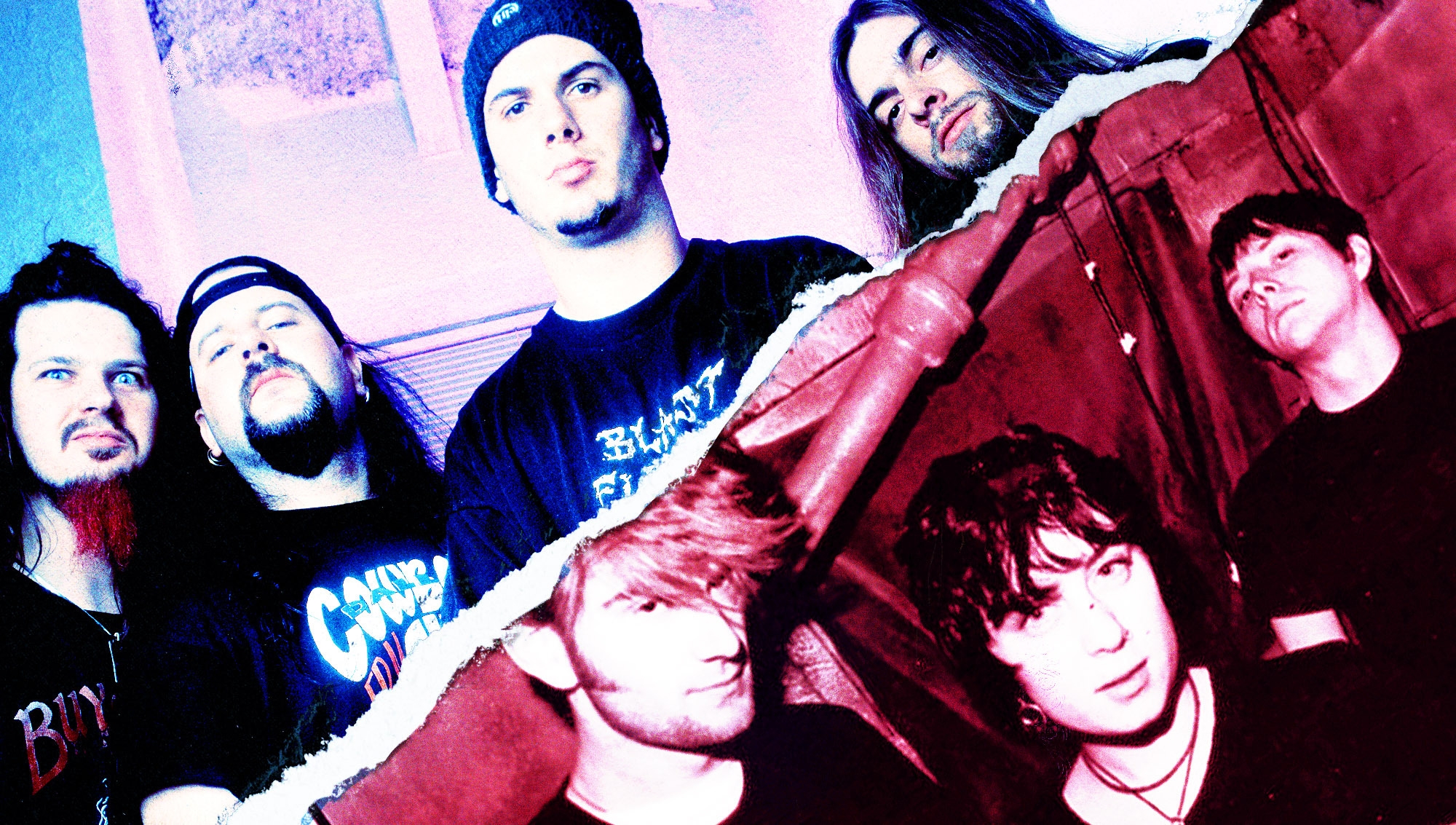Pantera’s Far Beyond Driven might be the heaviest album ever to hit Billboard’s No. 1 spot
While Pantera’s aggro-metal crossover success took the top spot in 1994, a Pacific Northwest indie marvel remains the dazzling release of the day

Release Date Rivals is a feature that looks back on a specific date in history to note the simultaneous release of two albums—one a well-known and historically appreciated album by a commercially successful artist, and one lesser-known record that arguably deserves equal, if not more, time in the spotlight as its better-known competitor.
Date: March 22, 1994
The champ: Pantera, Far Beyond Driven
It doesn’t happen often, but metal—or, perhaps more accurately, appreciably accessible subgenres of metal—occasionally manage to reach the rarified air of the number-one spot on the Billboard 200, the chart ranking the most popular albums and EPs in the U.S., based on sales and streaming metrics. The rise of hair metal in the ’80s ushered in a handful of top-charting acts (Quiet Riot, Bon Jovi, Guns N’ Roses, Def Leppard, and Mötley Crüe), while the ’90s saw Metallica soften its sound and reap the commercial rewards, as well as the rise of rap- and Nü-metal in the back half of the decade, with avatars of each (Rage Against The Machine in the case of the former, Korn and Limp Bizkit the latter) claiming the top spot, some more than once. And at the beginning of the 2000s, Tool’s Lateralus gave genuinely progressive and conceptual metal maybe its one and only shot atop the throne, a record whose brilliant and complex arrangements had more in common with Rush than the average nü-metal of the time. From then on, the 21st century saw more metal and metal-adjacent albums hit number one than ever before—and some of them, like Slipknot’s All Hope Is Gone, are pretty damn heavy at times.
But almost 15 years before that testament to how deeply metal has managed to quietly (ironic, that) insinuate itself into the mainstream, Pantera’s Far Beyond Driven threw a molotov cocktail into the unquestioned dominance of alternative rock. The album came out of seemingly nowhere to hit No. 1 on the Billboard charts in its very first weeks of release; it was a warning shot across the bow of the oft-emo tendencies of Alternative Nation, one that hinted at the deep hunger for expressions of extreme angst and anger that also made windows rattle far more violently than the contemporaneous sounds of a Pearl Jam or Stone Temple Pilots. There were plenty of innovative metal bands thriving below the alt-rock surface of the era, but none with the same lightning-bolt effect on the charts. Fitting, too, that it came from a group who had come up originally as a hair-metal act, before the members realized that they had absolutely had it with that shit.
Pantera reinvented themselves in 1990 with Cowboys From Hell, distilling their particular version of groove metal into a potent and intense wall of sound that got even heavier on 1992’s Vulgar Display Of Power. But Far Beyond Driven was where that sound received its commercial—and arguably critical—apogee, an album that crossed over to hook grunge fans, punks, and hard-rock aficionados at a time when such music was often anathema to mainstream music media, save for the metal ghetto of MTV’s Headbanger’s Ball and magazines like Kerrang! Plus, it was a case of right place, right time; nestled between the onset of alt-rock and the subsequent rise of more guttural versions of metalcore, Pantera’s bombastic, more-is-more intensity held appeal for the same brooding goth kids who had just had their minds opened to the possibility of such pummeling riffs and screams a couple years earlier, as symbolized by Nine Inch Nails’ “Wish.”
Right from the outset, the record announced itself as a mission statement of everything the band had incorporated into its stylistic stew of aggro influences. Lead single “I’m Broken” remains a high-water mark for a singalong song that nonetheless stomps and fusses as brutally as anything in the band’s repertoire, but those hitting play on the album were immediately greeted by opener “Strength Upon Strength,” which went one better in its clever fusion of hardcore and metalcore. Time and again, the record nails its tone of straight-faced fury and raw confessional, with singer Phil Anselmo’s exhortations successfully alternating between the grunts and low-range ferocity of “Becoming” to the cathartic and harrowing screams of his addiction opus, the seven-minute “Hard Lines, Sunken Cheeks.” But everyone gets standout moments on Driven, especially late guitarist Darrell Abbott, a.k.a. Dimebag Darrell (the first Pantera record to credit him as such); as we noted upon the release of the 2oth anniversary edition of the album, the guitarist “gets his best moments on the Pantera staple ‘5 Minutes Alone,’ where the swagger, fluidity, and dark melodicism of his riffage is chopped and sculpted into a monument to butt-ugly menace.”
 Keep scrolling for more great stories.
Keep scrolling for more great stories.
